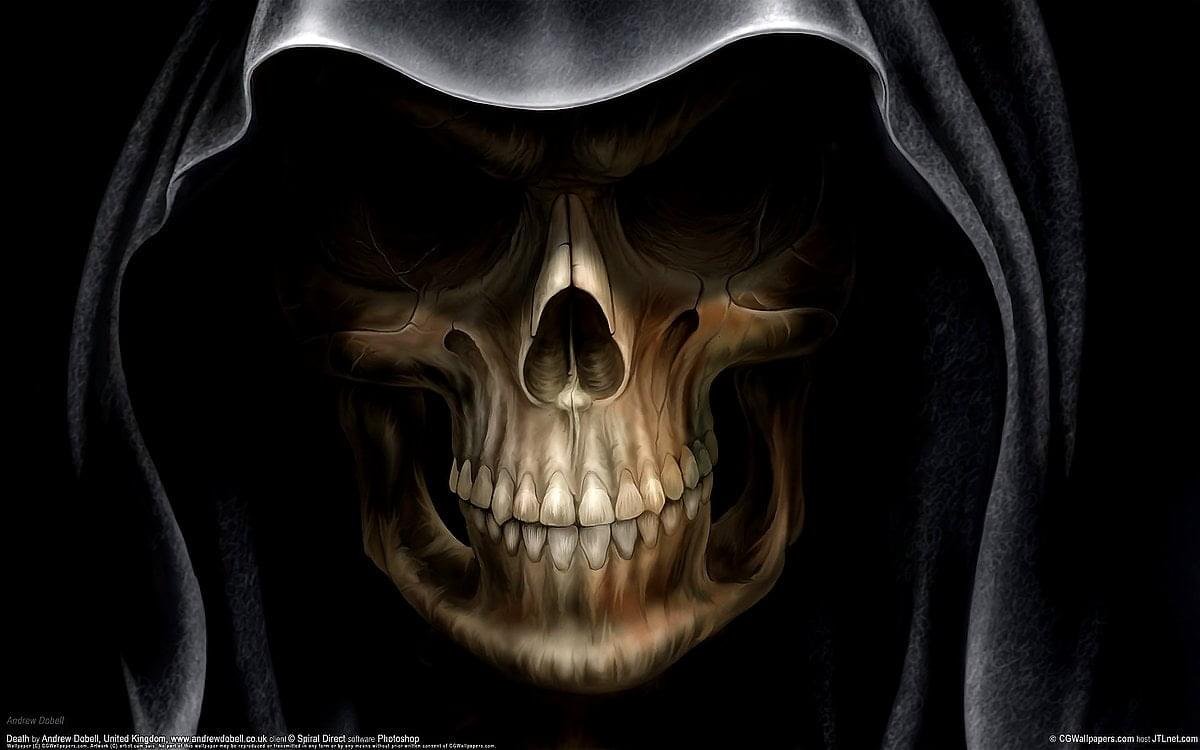Horror films are frightful. They’re filthy. They instill fear of losing your life and the hereafter. But for many of us, watching them is a blast—the perfect way to spend a Friday night, especially in October, when ghosts, gore, and the macabre are prevalent.
Consider It Chapter One, Stephen King’s terrifying novel that was adapted in 2017: The movie brought in more than $700 million globally. In other words, spectators choose to rush to theaters to watch a deadly clown attack a group of young children. (Pass the popcorn; Pennywise is ready to severe young Georgie’s arm.)
What gives, then? Why do so many of us make special efforts and even spend money to watch terrifying entertainment? Here are the opinions of the professionals.
1. You can get an exhilarating buzz from being afraid
Although though horror films are made up, some experts claim that watching them can cause a very genuine fight-or-flight response. According to Krista Jordan, PhD, a clinical psychologist with a practice in Austin, Texas, “the brain doesn’t always discern between dream and reality fully well.” Ask someone to describe what it feels like to bite into a lemon, for instance, and if they do it well, your salivary glands will start to work.
Jordan claims that watching scary films can result in the same kind of problem. She claims that at that precise instant, the brain “sort of forgets” that what it is perceiving is not actually dangerous and instead charges up the physiological response that would be appropriate if it were.
Your body then enters a state of fight-or-flight, releasing a surge of euphoric brain chemicals like dopamine and endorphins that can energise you and make you feel like you can take on the world (or at least Michael Myers).
2. Despite being afraid, you are secure
Although viewing a horror film may give you an adrenaline boost, you’re not in any danger when you’re watching something like The Purge, which is another major draw of the genre. Margot Levin, PhD, a clinical psychologist located in New York City, says that viewing frightening things in a safe context is something that we all yearn for.
She explains, “It dates back to early childhood.” “Put yourself in the shoes of a toddler learning to walk. One of their favorite activities is to flee from the parent, make it to a point where it’s a bit scary, and then rush back. It involves playing with risk while maintaining a sense of security.
Even if there is no actual danger, many individuals nonetheless experience a sense of success after finishing a horror film. According to Jeffrey Gardere, PhD, a clinical psychologist located in New York City, “you feel like, ‘I dealt with something that was outside of my comfort zone, and I defeated it,'” according to Health. “It inspires confidence in you.”
3. It aids in your readiness for the worst
By giving you a peek of how potentially dangerous circumstances could develop, horror films can help you feel more prepared for genuine danger. According to Coltan Scrivner, a PhD candidate in the Department of Comparative Human Development at The University of Chicago, “it’s about trying to learn to predict the world around you.” What do other individuals do in situations like this, even if they are fictional characters? What action do other people take when they encounter a specific threat or challenge?
“There’s a small part of me that believes that at some point there may be some side effect of some medication that’s not going to reanimate the dead, but that may truly affect a frontal temporal lobe or something, and people could behave in ways that could be very dangerous,” says Gardere, who acknowledges his fascination with zombie horror.
Gardere can approximate what would happen if his worst dread comes true by watching shows like The Walking Dead, and it’s not just the undead he’s taking notes on. As a psychologist, he claims that he watches shows like The Walking Dead to see how people act in a zombie apocalypse and how they develop into the real monsters. “The zombies are just window dressing,” someone said.
4. You learn to cope with horror
Watching horror films, according to experts, can help you develop coping mechanisms and act out scenarios. According to Scrivner, “I believe that people who see these frequently are learning how to deal with ambiguity, suspense, and anxiety.” He recently co-authored a study that demonstrates that, in the face of the current Covid-19 outbreak, horror fans are more resilient and less mentally affected than non-horror fans—likely because of their skilled coping mechanisms.
According to Scrivner, “We believe that what’s happening is that horror fans are essentially creating a toolkit for how to deal with feeling uncomfortable or terrified.” “So when you see a horror movie, you do precisely that. You control your emotions so that you can feel both fear and enjoyment at the same time.
5. You can do this to discover your dark side
Erin Hadley, PhD, a clinical psychologist in Philadelphia, tells Health that “we all have unknowable elements of ourselves that I think are kind of externalized into hazards outside of us.”
She proposed that one reason we might be drawn to horror is that it allows us to peer into our most intimate areas. She claims that many people “identify with her being embarrassed and ridiculed at school and at home, for example, with a movie like Carrie.” So do you support her killing her peers then?” I believe that a lot of people do.
Jordan continues, “A traditional Freudian explanation [of why we enjoy horror] is identifying with the culprit. “It’s the same reason Freud would say we like watching boxing: We identify with the person who is pounding the opposition rather than the one who is being struck. Although I think many people would find it difficult to admit that, I actually believe that is most likely happening on some level.
6. That gives you the impression that you are unique from the victim, increasing your chances of surviving
You can persuade yourself that you would survive if put in the same scenario by observing horror movie victims make glaring errors, such as the tired cliché of “going back in the house.”
When the intended victim successfully renders the offender helpless, Jordan claims there is always a scenario in which they turn around and begin to slowly walk away from the crime scene. It’s at that point that you might start screaming at the screen (because, of course, the killer will stand back up!) and it’s not simply because doing so makes a horror movie more entertaining.
According to Jordan, “I think there’s that part of us that’s trying to say, ‘That would never happen to me.'” “‘Here are all the possible ways I would answer.'” For instance, you would run in the woods better, think more quickly, and never, ever trip.
It’s similar to thinking, “It would never happen to me because I would never be out at 4:30 in the morning,” after reading a newspaper article about someone being killed in a crime that occurred at that hour, according to Levin. That’s magical thinking, I say. It’s the means by which we dissociate from our fear of bad things happening to us.




